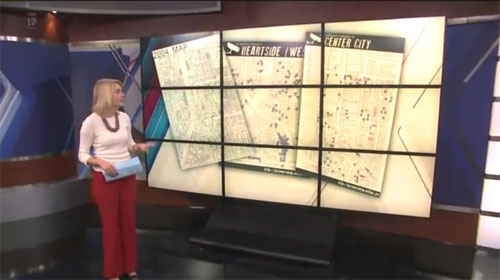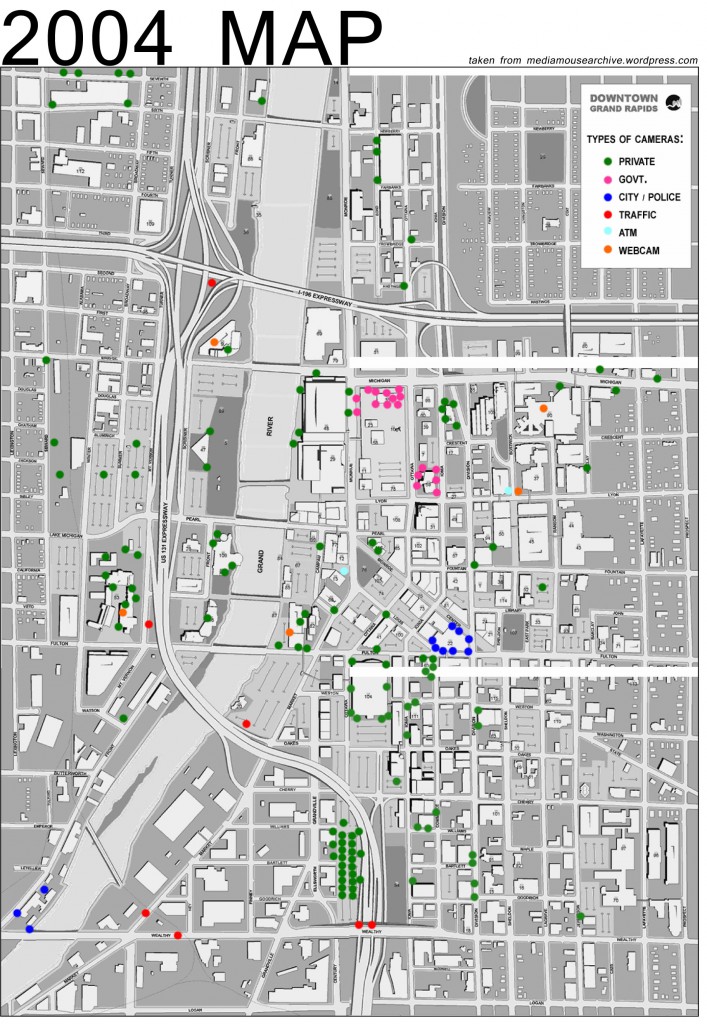WOOD TV recently published a story indicating that the Grand Rapids Police Department (GRPD) and the Kent County Sheriff’s Department have had access many surveillance cameras in downtown Grand Rapids since 2009. According to the story, 100 cameras are part of the system.
From the article:
The city center camera system relies on voluntary participation by private businesses. Owners sign an agreement with the Grand Rapids Police Department and Kent County Sheriff’s Department giving them access to the private cameras. There are currently about 100 cameras signed up for the program throughout the downtown Grand Rapids area.
The program is reactive, authorities say: Investigators tap into a nearby camera to review footage after a crime occurs.
Kent County documents show that since the 2009 fiscal year, nearly $630,000 in federal grants has been spent on linking cameras to GRPD.
…
Wednesday, GRPD would not allow 24 Hour News 8 into dispatch where computers connected to cameras are located. Officials cited a privacy agreement between the business owners and the county to keep the locations of the cameras secret — even though all of them are outside in plain sight.

